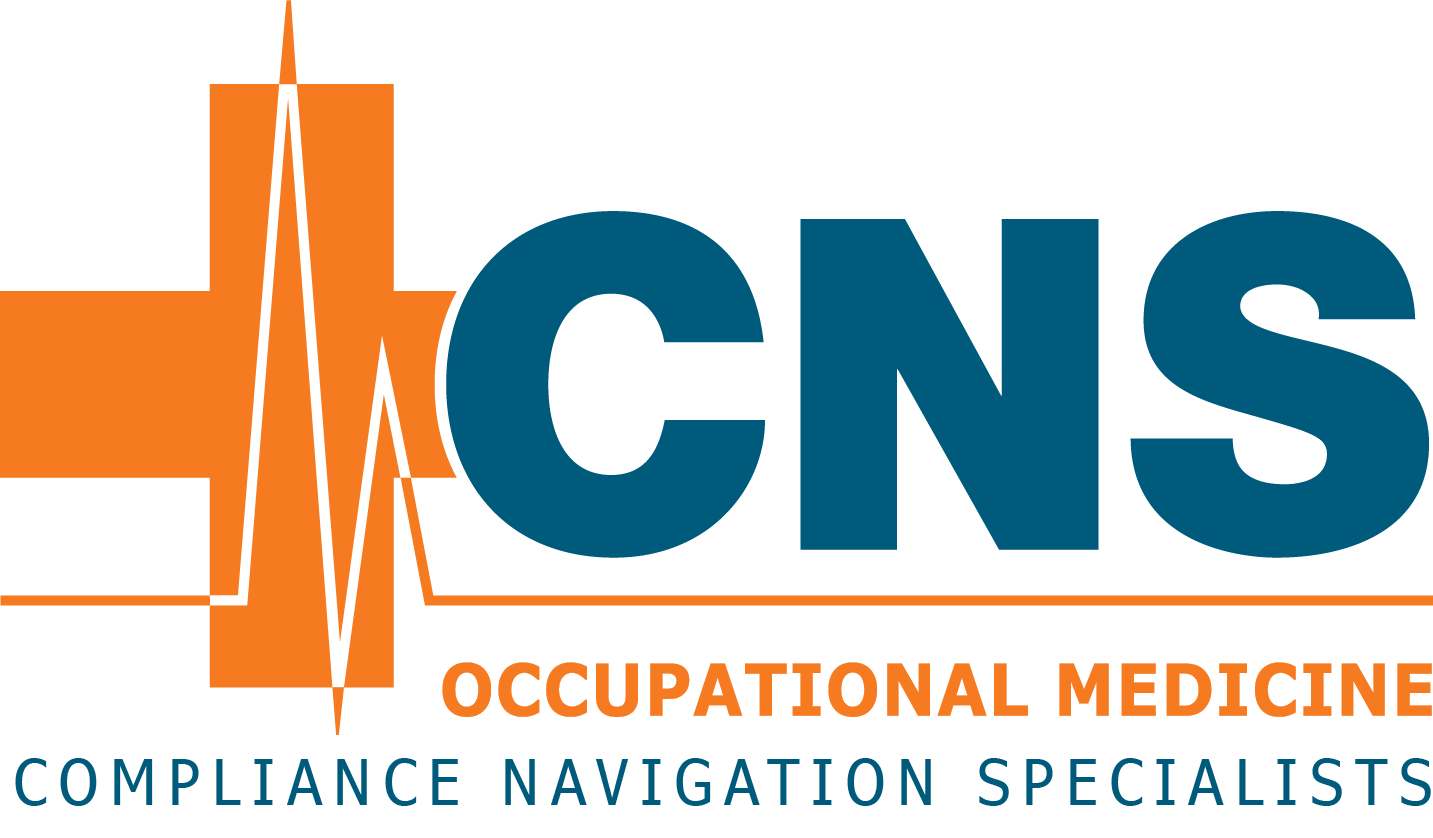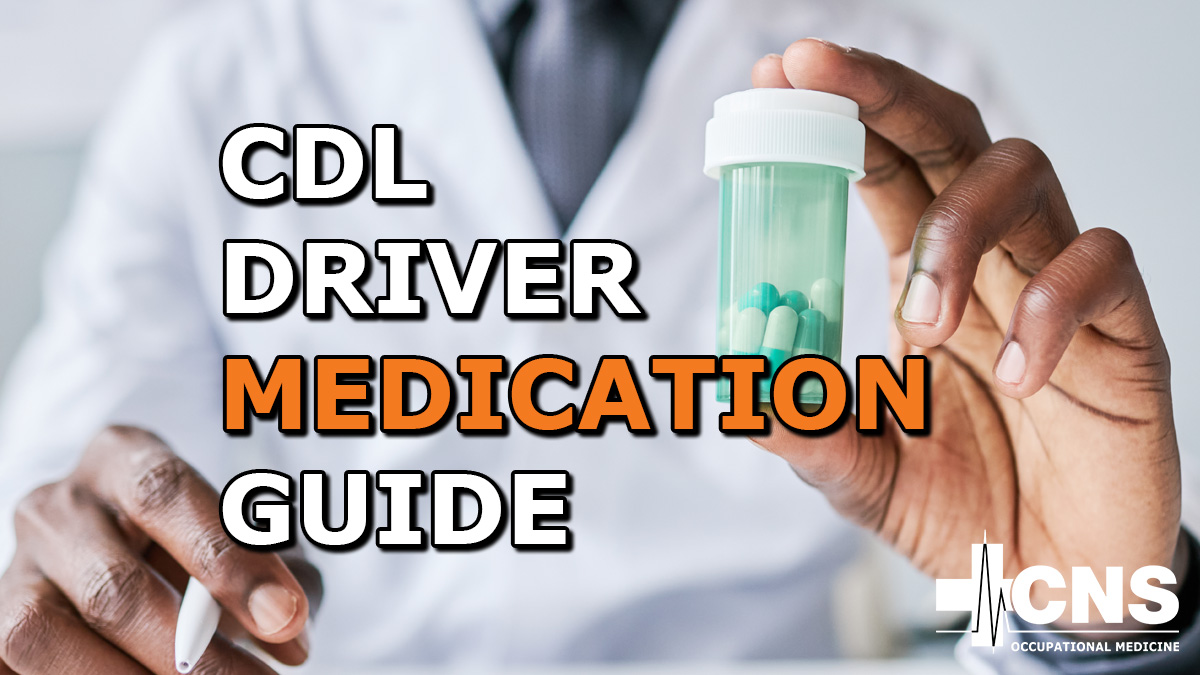Drivers are responsible for ensuring it doesn’t compromise their ability to safely operate a CMV.
For many drivers, maintaining health while complying with Department of Transportation (DOT) and Federal Motor Carrier Safety Administration (FMCSA) regulations can be challenging—especially when prescription medications are involved.
From pain management and ADHD treatment to anxiety or sleep disorders, medications that help one aspect of a driver’s life can sometimes jeopardize their career if misunderstood or misused.
Understanding how the DOT, Medical Review Officers (MROs), and medical examiners evaluate prescription medications is critical for staying compliant, safe, and employable in the trucking industry.
What the DOT Says About Prescription Medication
Under 49 CFR Part 40, the DOT allows drivers to use prescription medications only if they are:
- Legally prescribed by a licensed medical professional.
- Used in accordance with that prescription.
- Non-impairing to the driver’s ability to safely operate a CMV.
- Prescribed with full disclosure of the driver’s safety-sensitive duties.
When a DOT drug test comes back positive for a controlled substance, the Medical Review Officer (MRO) is responsible for verifying whether that result can be explained by a legitimate prescription.
If valid, the result may be reported as negative — but the MRO may still flag the driver for a “safety concern” if the medication could cause drowsiness, slowed reflexes, or impaired judgment.
That means even with a legitimate prescription, a driver’s medical certification can still be questioned if the medication poses a risk to public safety.
How Old Can a Prescription Be?
This question often confuses drivers — especially during random or pre-employment testing.
According to Dr. Kent Peterson, MROCC Vice Chair, and guidance from the DEA, SAMHSA, and DOT:
- There’s no federal time limit under the Controlled Substances Act (CSA) for how long a prescription remains “valid.”
- State laws, however, often limit refills or dispensing windows (e.g., six months for most Schedule III and IV drugs).
- The DOT removed the informal “one-year rule” years ago — MROs should not disqualify a prescription based solely on its age if it’s legitimately prescribed and still being taken under medical supervision.
The key takeaway: prescriptions don’t “expire” federally, but using old medications without your doctor’s approval—or after the treatment plan has ended—can be viewed as misuse.
Important Clarification: What Drug Test Collectors Can and Cannot Ask
This is an area where many drivers—and some employers—have misconceptions.
DOT drug-screen collectors are prohibited from asking about or documenting prescription medications.
Here’s what drivers need to know:
- Collectors cannot ask what medications you are taking.
- Collectors do not document prescriptions on the Custody & Control Form (CCF).
- Bringing prescription medications to the collection does not help and may actually cause issues.
- Collectors cannot evaluate, verify, or review prescription drugs.
- Providing medications at the collection site may violate privacy standards and, in rare cases, can interfere with the collection process.
The collector’s only job is to collect a legally valid specimen—not to review medical information.
If something flags on the drug screen, the MRO will contact the driver directly for prescription verification.
That is the correct and only approved process.
Bottom line: Drivers should not bring prescription medications to the collection site and should understand that the collector cannot accept, review, or annotate them.
What Drugs Will Disqualify You from Operating a CMV in 2026?
Navigating the intersection of prescription medicine and federal safety regulations can feel like walking a tightrope. With updates to the FMCSA Drug and Alcohol Clearinghouse and more rigorous medical reviews, it’s important to understand which drugs may lead to disqualification — even when legally prescribed.
Drivers enrolled in a DOT testing program are subject to random, pre-employment, post-accident, and reasonable-suspicion testing.
The DOT’s standard five-panel test screens for:
- Marijuana (THC)
- Cocaine
- Amphetamines / Methamphetamines (e.g., Adderall, MDMA, MDA)
- Opioids (e.g., codeine, hydrocodone, oxycodone, morphine, fentanyl)
- Phencyclidine (PCP)
A positive result for any of these substances — whether due to illicit use or mismanaged prescriptions — will trigger mandatory FMCSA Clearinghouse reporting and can result in prohibited status, suspending your ability to operate a CMV until the return-to-duty process is complete.
Prescription Drugs: Safe or Dangerous?
Under 49 CFR 391.42(b)(12) and 21 CFR 1308.11, any controlled substance or habit-forming medication can disqualify a driver unless both of the following are true:
- The prescribing doctor has provided documentation stating the driver is safe to perform safety-sensitive functions.
- The DOT medical examiner agrees and certifies the driver as medically qualified.
Common Disqualifying or High-Risk Medications Include:
- Amphetamines (e.g., Adderall, Vyvanse)
- Methadone or Suboxone (unless cleared)
- Opiates and opium derivatives (e.g., hydrocodone, morphine, codeine)
- Benzodiazepines (e.g., Xanax, Valium)
- Anti-seizure medications used for seizure prevention
Even if prescribed, drivers may be disqualified if these drugs impair their ability to drive safely or if the prescriber fails to provide proper documentation.
Which Drugs Are Acceptable (With Conditions)?
As of 2025, the FMCSA has clarified that certain medications may be conditionally acceptable with documentation and case-by-case review:
- Antidepressants (e.g., SSRIs, SNRIs) — generally acceptable if side effects don’t affect alertness.
- Smoking cessation aids (e.g., varenicline/Chantix).
- Muscle relaxers (e.g., cyclobenzaprine) — if used at night or non-sedating.
- Short-acting sleep aids (e.g., Lunesta, Ambien) — timing and dosage are key.
The DOT medical examiner always has the final say, even if a doctor writes that a driver is “safe to operate.”
Common Mistakes Drivers Make
- Not telling their doctor they drive commercially
Doctors must understand your safety-sensitive role before prescribing potentially impairing medications. - Using old or leftover prescriptions
Even if once valid, taking medication without current medical supervision can raise red flags with MROs. - Bringing prescription bottles to the drug test collection site
This is a major misconception. Collectors cannot review, accept, or document your prescriptions. Bringing medications to the testing site does not speed up verification and may violate privacy or compromise the collection process. - Using someone else’s medication
Even one dose counts as illegal drug use under DOT regulations. - Assuming all legal medications are allowed
Many drivers mistakenly believe if a medication isn’t illegal, it’s automatically acceptable. Not true — impairment and medical qualification still matter.
Are Truck Drivers Allowed To Take Medication While Driving?
Yes — but only under the right conditions.
Prescription or over-the-counter medications that cause drowsiness, dizziness, or delayed reaction times can endanger both the driver and the public. FMCSA guidance prohibits using any medication that impairs the ability to safely operate a CMV.
Medications That Often Cause Impairment:
- Anti-seizure drugs
- Methadone
- Amphetamines or stimulants
- Opiates and narcotics
- Sedating antihistamines or sleep aids
Side effects such as fatigue, blurred vision, or delayed reflexes can lead to serious accidents — and liability extends to both the driver and carrier if impairment was known or should have been known.
Tips to Stay Compliant and Safe
- Always disclose all medications at your DOT physical and during company medical reviews.
- Request a driving-clearance letter from your physician for any potentially impairing drug.
- Keep documentation current — prescription bottles, dosage instructions, and prescriber contact info.
- Don’t start or stop medication abruptly without consulting your doctor.
- Use an occupational medicine provider like CNS OccMed that specializes in DOT compliance, driver wellness, and safe medication management.
The Bottom Line: Safety Comes First
There’s no single DOT rule that bans all prescription medications — but there is a clear standard: you must always be fit to drive.
A medication that helps one driver stay functional might make another unsafe behind the wheel. That’s why proactive communication between drivers, physicians, and DOT medical professionals is essential.
CNS Occupational Medicine
Your partner in DOT compliance, driver wellness, and occupational health management. We help fleets and drivers stay safe, compliant, and confident on the road.
CNS Occupational Medicine offers complete drug and alcohol testing program management, including MRO services, and compliant documentation tracking.
Our experts ensure that all DOT rules and regulations are followed, including the implementation of random drug tests for you and your drivers, updating your company drug testing policies, record retention and document purge management.
We take all the necessary steps and precautions to keep you and your drivers compliant with the DOT drug and alcohol testing requirements.
For more information, contact us at 800.551.9816 or info@cnsoccmed.com.




